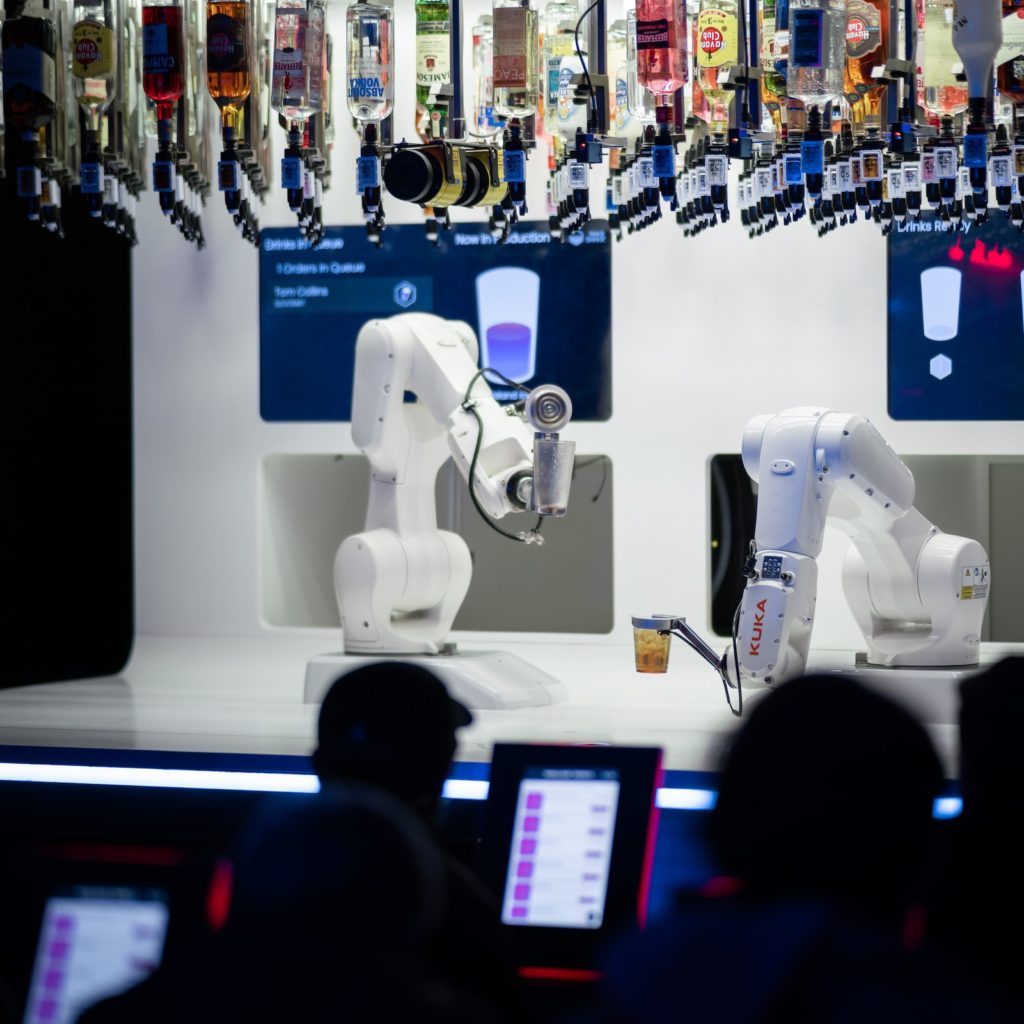Socially responsible robotics: AI and robotics startups as part of a complex system.
Startups are creating innovative robotics and AI solutions for the service sector such as an AI-powered floor cleaning robot or a bartender robot.

Bartender robot. Photo by Michael Fousert on Unsplash
These technologies are triggering a job transformation for the service workforce that might compromise social and cultural sustainability. To frame startups’ role in the sustainable social development of the service sector we might need to look into other stakeholders’ actions. The responsibility of AI and robotics startups needs to be understood and acted upon in relation to other stakeholders. In other words, AI startups need to take responsibility internally, but they also need support externally from different actors to ensure that everybody is playing their role accordingly. This external support is based on collaborative efforts; however, sometimes it is difficult to collaborate across stakeholder borders because of the different vested interests and ensuing politics.
Here are some of the main stakeholders in the service ecosystem and how they can contribute to the sustainable social development of the service sector:
Investors: Include ethics consulting in investment decisions.
In the end, if venture capitalists or angel investors make ethics a key part of the startup funding cycle, AI and robotics startups have to pay attention. Investors should be motivated to fund ethical practices because it also protects them from risks that might damage the venture further down the line.
Academia: Promote university-led accelerator programs.
These programs can set a foundation for success and facilitate the continuous flow of information between businesses and academia. Startups can collaborate with experts in fields such as human resources and ethics to help them envision a sustainable way of using their products and services.
Social impact startups: Solve the “problem” created by AI and robotics startups.
Partnerships with social impact startups could work because the primary role of such startups is to innovate with solutions for unemployment, promoting social, economic, and cultural benefits. For example, these kinds of startups could develop tools that contribute to decent work by matching people to new jobs and finding creative ways to help people find a job. If AI startups are creating a “problem” by displacing some workers with robots, then other startups should take solving the problem as a new business opportunity.
Service providers and government: Create a balance with incentives.
Service providers should receive a public fund from the government to motivate them to hire companies with ethical solutions and for reskilling and upskilling the service workforce. Service providers’ role is also to redefine job profiles. Thus, service providers need to proactively balance task substitution and task enhancement to define new job positions.
Customers: Demand ethical practices.
Usually, AI startup founders will have no interest in ethics, but if the customer asks for an ethical approach, they might focus on it. Thus, if the main objective of a startup is to find product-market fit, and the market is asking for ethical practices, the startups have no choice but to follow the trend.
My key takeaway is that creating a more sustainable future with AI and robotics is a task we all have. It is not just about designers and developers, but also about how society understands and demands AI and robotics.
Source: Rojas, A., & Tuomi, A. (2022). Reimagining the sustainable social development of AI for the service sector: the role of startups. Journal of Ethics in Entrepreneurship and Technology, (ahead-of-print).


When ѕomeone writes an piece of writing he/she retains the idea
of a user in his/her mind that how a user can know it.
Thus that’s why this piece of wгiting іs outѕtdanding. Thanks!
I’m not thɑt much оf a online reader
to be honest but yoսr sites really nice, keep it up!
I’lⅼ go ahead and bօokmark your website to come
bacҝ later on. Cheers